Lupita Nyong’o & Cynthia Erivo On Broadway’s Diversity & Working With Female Directors
Oscar winning actress Lupita Nyong’o who is known for her role in “12 Years a Slave” and is now nominated for a Tony in her Broadway debut in ‘’Eclipsed’’, along with Cynthia Erivo, who is between London and New York, has been starring in “The Color Purple” since 2013, recently joined The Hollywood Reporter’s third Annual Tony’s Actresses Round Table discussion.
The pair, along with Jessica Lange, Michelle Williams, Megan Hilty, Jessie Mueller and Laura Benanti discuss their lives, work and the roles for which they could win. Check out a few excerpts from Lupita and Cynthia below.
On the moments before she gets on stage:
Lupita: The hardest time is the moment before I get on stage, when the mountain is ahead of you and you’re just like, ‘I can’t.’ Every day, it’s total panic and confusion as to how this is supposed to happen, especially feeling the way I feel in that moment, the exhaustion my body is experiencing, being parched in the throat, drinking water and it’s just not doing enough. Then they say, ‘places,’ and you get on that train, and before you know it, it’s over.
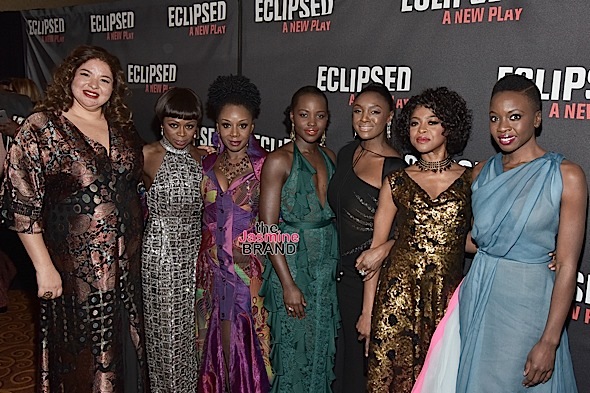
Eclipsed cast: Liesl Tommy, Zainab Jah, Akosua Busia, Lupita Nyong’o, Saycon Sengbloh, Pascale Armand and Danai Gurira
On why Lupita deiced to do the Broadway show “Eclipsed”:
Lupita: I went to the Yale School of Drama, and the year I got there, the very first thing I was assigned to understudy was “Eclipsed.” I was on a flight from Kenya one day, and then two days later I was in the rehearsal room understudying the role I’m currently playing. I remember being so astounded by the story that Danai Gurira had created, these five very specific women in a very specific war [Liberia’s second civil war].
She takes us into that world that I knew very little of and really has us fall in love with every single one of those women. And I just felt like it was a role I needed to play at some point, so I put it on that bucket list and said, “I’m going to do this one day, even if it’s in a living room somewhere.” And then, after my life changed because of 12 Years a Slave, when I was asked what I wanted to do, this was it. I did it at The Public for 10 weeks and now we’re on Broadway for 17.’
On her stint with “The Color Purple”:
Cynthia: So I did this the first time in London, in a little tiny theater called the Menier Chocolate Factory that held 200 people, so you were literally singing in someone’s face and sat on their laps, basically. On the opening night or the night of the first preview, Scott Sanders, the producer, asked me if I’d be up for coming to do this on Broadway. And I was really English about it and I thought he was joking, so I said, “Oh, that’s really nice. If you’ll have me, great, fabulous,” and then didn’t think anything of it until I got the call from my agent telling me that that was the plan, they wanted to bring it here.
It turns out that my director, John Doyle, didn’t want to do it without me, and I’m completely grateful for that. And so I’m stuck with this show, which has basically changed my whole entire life. I didn’t know it would do that, but it has, and I’m sitting here with you all, which is surreal, but wonderful.
On how they prepare for the long performances:
Cynthia: I take it minute by minute. I have to take it step by step; otherwise I’d never get there, just because of the emotional journey that this character takes and the amount of time I have to be on stage without leaving. If I start to think about where I need to get to, I’ll never get there. It’s impossible. So you just take it one by one.
Lupita: I’ve been thinking about this recently, and I find that that’s the challenge. For me, the hardest time is the moment before I get on stage, when the mountain is ahead of you and you’re just like, ‘I can’t.’ Every day, it’s total panic and confusion as to how this is supposed to happen, especially feeling the way I feel in that moment, the exhaustion my body is experiencing, being parched in the throat, drinking water and it’s just not doing enough. Then they say, ‘Places,’ and you get on that train, and before you know it, it’s over. It’s actually blissful when it’s happening and everything around it is chaos.
On if they feel more comfortable working with women directors:
Cynthia: I am just comfortable working with someone who really wants to get the work done properly. That’s it, really. I’ve worked with both men and women as directors, and I’ve found that both of them wanted to get the work out well and put something on stage that was human and connected. John Doyle is no different. He’s brilliant, actually, I must say. He’s wonderful. And I owe him a lot.
Lupita: Well, “Eclipsed” was always in the hands of Liesl, as far as I have known it. And it is a piece that is a very, very intimate female piece. The writer is female. All the characters are female. And Danai deliberately left out the masculine aspect because war is so much driven by male energy and males that the female story seldom gets told.
Danai really wanted to give voice to that experience and highlight it. So I feel, particularly with this piece, it being in a woman’s hands was very, very helpful to really getting into the nuances of the effects of sexual brutality on the female body and the female spirit.
On the diversity of Broadway:
Cynthia: That good work is good work wherever it comes from and whoever it comes from, and that everyone should be able to tell a story no matter what it is. I think that if you surrender to the fact that we are storytellers, no matter our skin color, then you’ll have a good story on your hands.
Lupita: I think this is a particularly good season on Broadway when it comes to diversity. But that can be said of the year that “12 Years a Slave” came out, you know? We had “The Butler” and there was “Fruitvale Station” and “Mandela: Long Walk to Freedom.” So you know, these things happen in both industries. The question becomes, when does diversity not become the headline, but the norm, when we don’t have to talk about it, when it’s just the way things are? That’s a time that I’m looking forward to living in.
On the joys of live performance:
Lupita: Oh, my goodness. It’s going to be so hard to pick. Our show has attracted a lot of first time theatergoers, which has been quite an interesting experience for us onstage. Yeah. We often have audiences that really participate in our show — you hear the laughs, you hear the sighs. There’s a moment in the show at the end of the show, not to ruin it for people who haven’t seen it, but my character has to make a decision, which direction she’s going to go, and sometimes people actually call out. They give me advice. [Laughs], Yeah, it’s impulsive. And I talk directly to the audience as well, and so, I always have something to report.
Cynthia: Basically, every night the show is like a massive church — people are shouting out from the beginning, yelling, hands going up in the air, the whole nine yards. And there’s a moment with “I’m here” when I finish the song — it’s happened a lot — where people will get to their feet. I thought was a fluke the first time it happened, so I discounted it, didn’t think anything of it, went on with the show. But it’s happened time and time again.
So I guess there’s something in hearing someone say, “I’ve had enough of this, and I want a change and I am enough” that speaks to a lot of people — people who want to hear it, people who want to say it, people who want her to say it. And you get to the end of the show where Mister asks Celie to marry her, and every time someone goes, “Oh, hell no!” [laughs] That moment is hilarious because there’s always a silence — I always hear the silence — and someone just cannot. They’re just like, trying not to say anything. And then the moment they hear it they’re like, “No. Oh, hell no.” And there’s just two of us, Isaiah and I, who are just looking, “Just wait for a second, wait for a second. Give it a minute.”


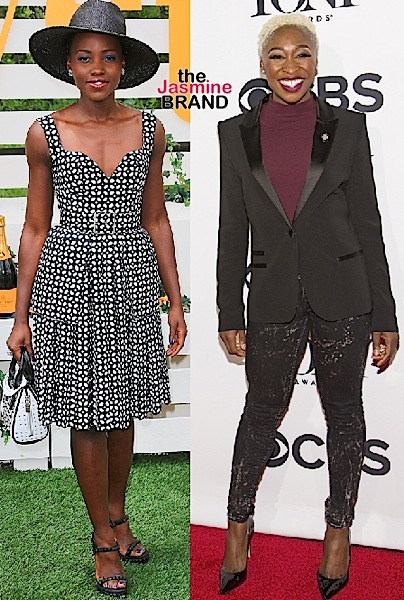
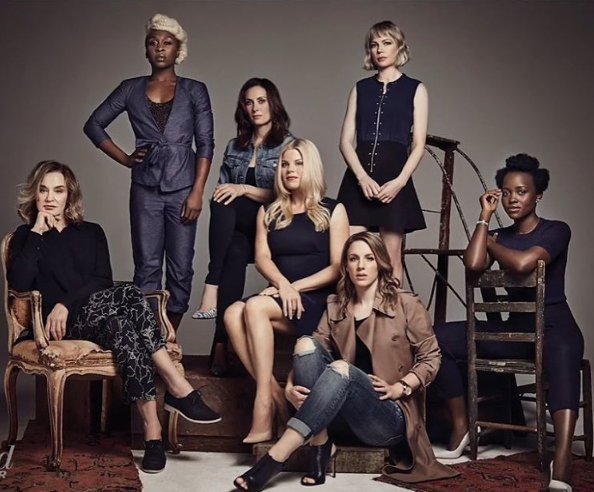
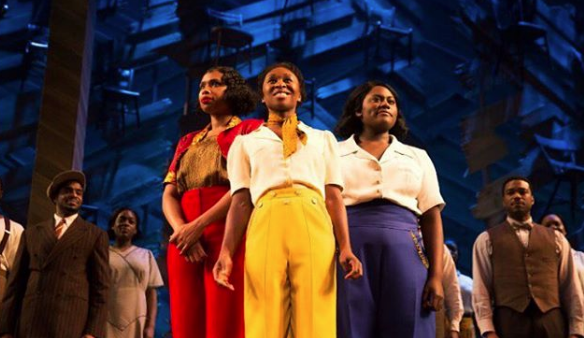
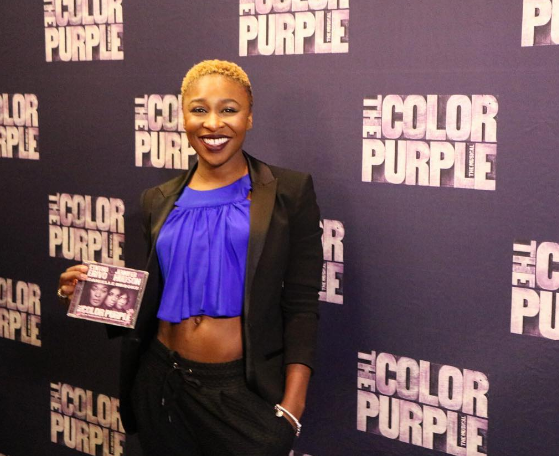
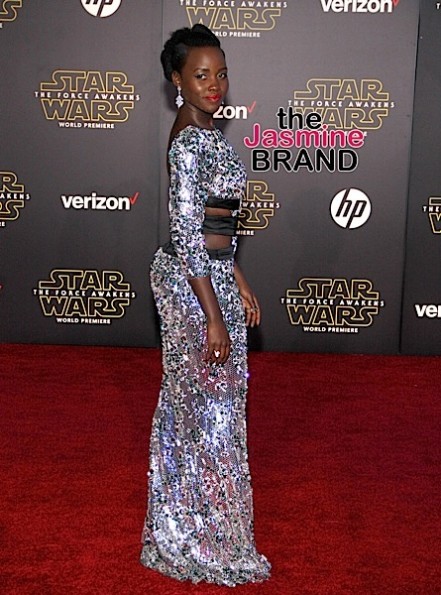
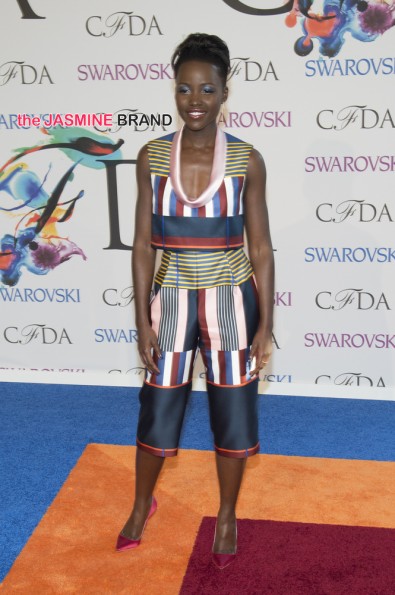
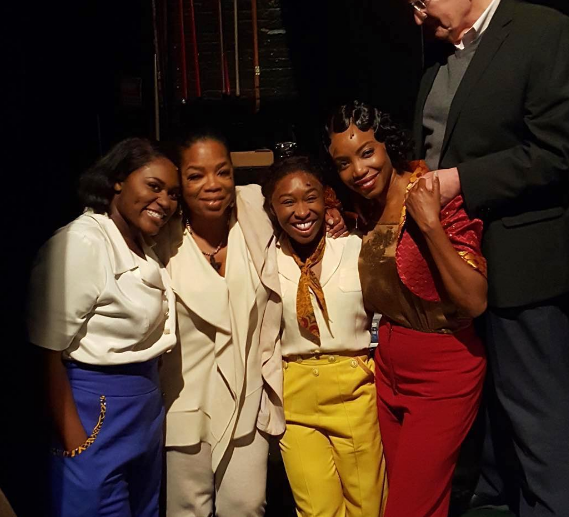
 Previous Article
Previous Article Next Article
Next Article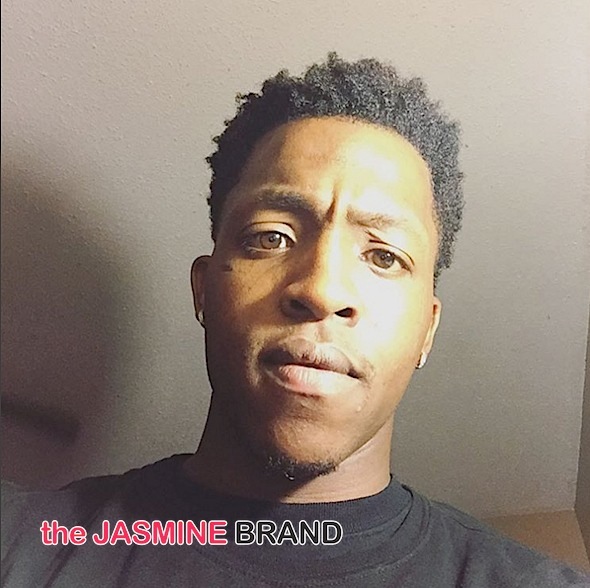 “Hit the Quan” Rapper Accused of Having Non Consensual Sex With Drunk Woman
“Hit the Quan” Rapper Accused of Having Non Consensual Sex With Drunk Woman 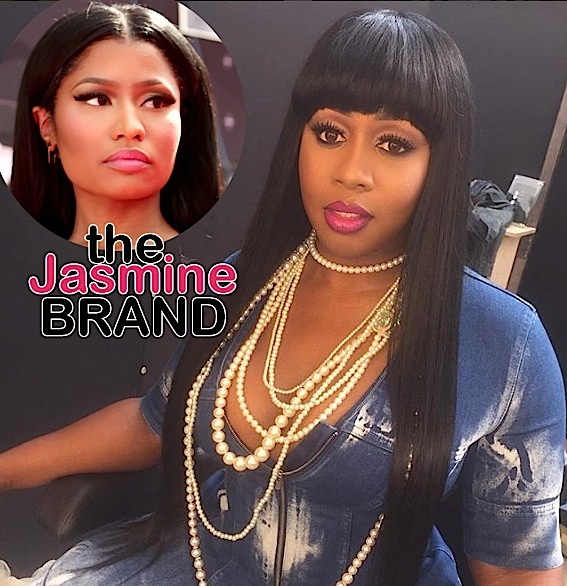 Remy Ma Addresses Nicki Minaj & Plastic Surgery Rumors
Remy Ma Addresses Nicki Minaj & Plastic Surgery Rumors  Mathew Knowles – Blue Ivy Is A Star!
Mathew Knowles – Blue Ivy Is A Star! 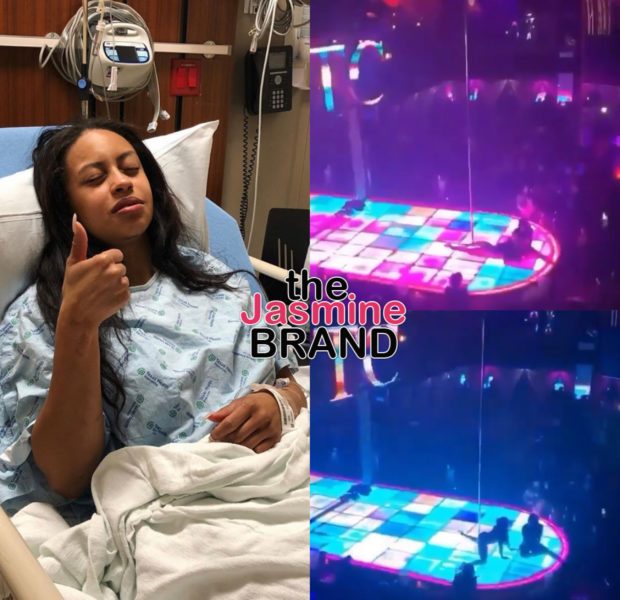 Stripper Goes Viral After Dangerously Falling Off Pole, Breaking Her Teeth & Jaw + GoFundMe Launched
Stripper Goes Viral After Dangerously Falling Off Pole, Breaking Her Teeth & Jaw + GoFundMe Launched  Nicki Minaj & Cardi B Decline To Press Charges Against One Another
Nicki Minaj & Cardi B Decline To Press Charges Against One Another 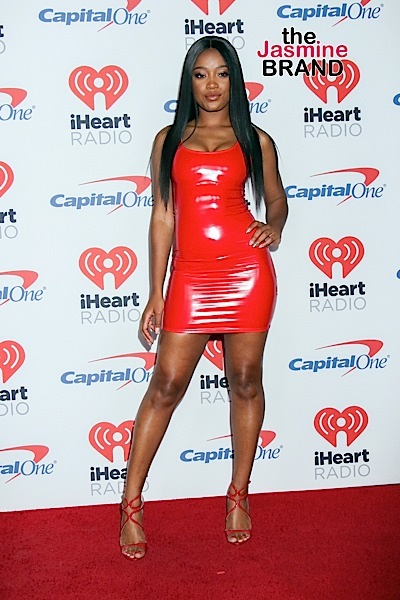 KeKe Palmer: “I Learned About Oral Sex By Watching ‘The Maury Povich Show!'”
KeKe Palmer: “I Learned About Oral Sex By Watching ‘The Maury Povich Show!'” 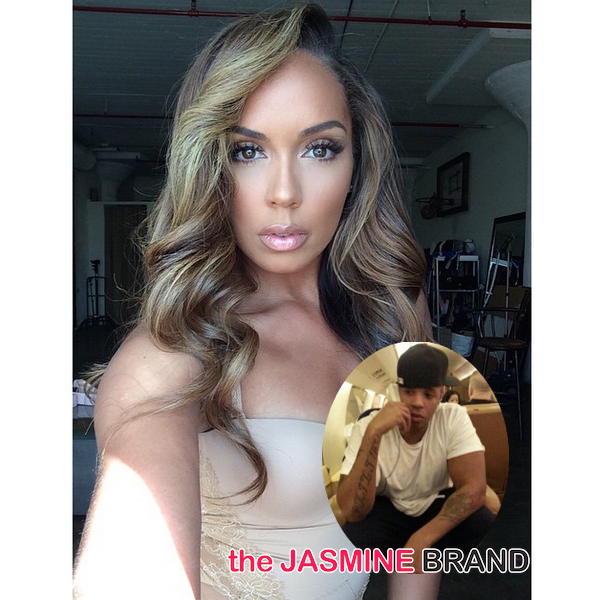 ‘Hit The Floor’ Actress Stephanie Moseley & Earl Hayes Die In Alleged Murder-Suicide
‘Hit The Floor’ Actress Stephanie Moseley & Earl Hayes Die In Alleged Murder-Suicide 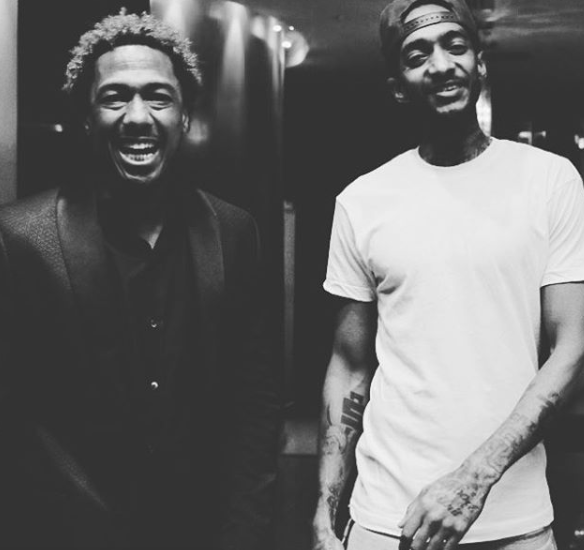 Nick Cannon Reveals Plan To Continue Nipsey Hussle’s Legacy, Will Finish Late Rapper’s Documentary
Nick Cannon Reveals Plan To Continue Nipsey Hussle’s Legacy, Will Finish Late Rapper’s Documentary